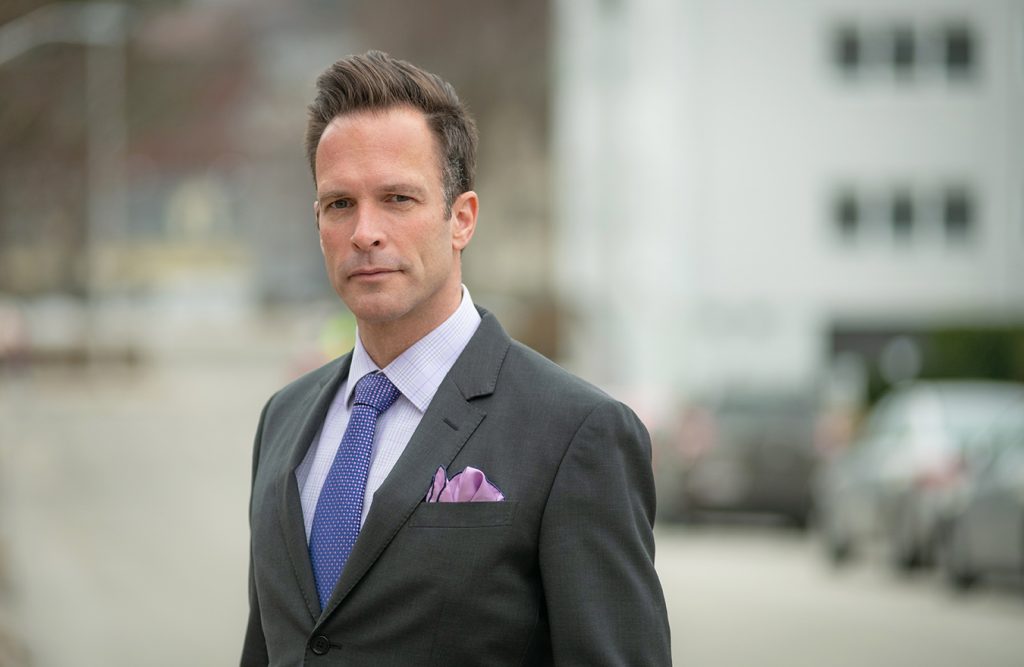Professor Edward Carr named climate change adviser on prestigious environmental panel

Professor Edward Carr, director of the International Development, Community, and Environment Department (IDCE), has been named the Climate Change Adaptation Adviser on the Global Environmental Facility’s Scientific and Technical Advisory Panel.
With this appointment, Carr becomes one of only seven panelists making key decisions and providing guidance to the Global Environmental Facility’s (GEF) portfolio, which exceeds $1 billion per year. Carr likens the GEF to a venture capital fund that uses its portfolio to catalyze or otherwise influence projects proposed under international environmental conventions, such as the UN Framework Convention on Climate Change. Its 18 partner agencies — including the World Bank, World Wildlife Fund, African Development Bank, the UN Development Programme and the UN Environment Programme — manage those projects on the ground.
Carr’s appointment arrives at a critical time, as the Scientific and Technical Advisory Panel (STAP) builds climate change adaptation into the entire Global Environmental Facility portfolio. In December, the GEF approved a $64.8 million work program for climate change adaptation in the world’s poorest countries.
Carr will work with other panelists and the STAP secretariat to ensure funded projects are based on current science. Comprising international experts on climate change mitigation, adaptation, biodiversity, chemicals and waste, land degradation, and international waters, the panel helps GEF evaluate proposals. “We make sure these projects are using, and line up with, the most up-to-date science, so they are more likely to be effective,” he says.
The STAP has a convening role that will allow Carr to leverage his experience in academia and in development donor organizations, drawing these two communities closer together. “We may not know enough about a certain issue to actually inform anything,” he says, so panelists can convene a workshop or recruit experts to fill the knowledge gap. That function not only shapes the work GEF does “but also shapes academic and research conversations.”
“This could lead researchers to think about their work in a different way,” he says. “We can create bridges between academia and the world of policy and implementation.”
Carr says his appointment to Scientific and Technical Advisory Panel is just another example of how highly regarded Clark is in the environmental and development communities. He and fellow IDCE Professor Elisabeth Gilmore are among the 721 experts contributing to the Intergovernmental Panel on Climate Change’s Sixth Assessment Report, which will be released in 2021. Carr and Gilmore are lead authors for chapters in the IPCC Working Group II report, which focuses on the impacts, adaptation, and vulnerability to climate change.
“You have two authors in Working Group II of the upcoming IPCC assessment report from IDCE — that is as many or more than any other university in New England. We have an unbelievable concentration of strength in this particular area,” he says, noting that other Clark professors, including polar scientist Karen Frey and geographer Christopher Williams, do globally recognized work on climate change. “It’s remarkable that a campus this size has the kind of global reach we have.”
That’s good news for current and prospective Clark students, particularly those who, through IDCE, will be wrestling with a host of global challenges exacerbated by climate change. “There is a whole generation of kids coming into college who don’t have to be told of the importance of climate change, but who do want to know what’s being done and what they can do, and that there are things they can learn,” Carr says. “Clark already does this — I want the world, and the country, to understand how good Clark is.”
Clark students looking to engage with the issue of climate change don’t need to limit themselves to polar or social science, Carr notes. This challenge will require attention from a wide range of perspectives. “There are places for artists and writers — and no portion of the natural sciences will remain untouched by the things we have kicked off through climate change. Students can be themselves and still be aware of, and engaged with, this enormously important topic.”


